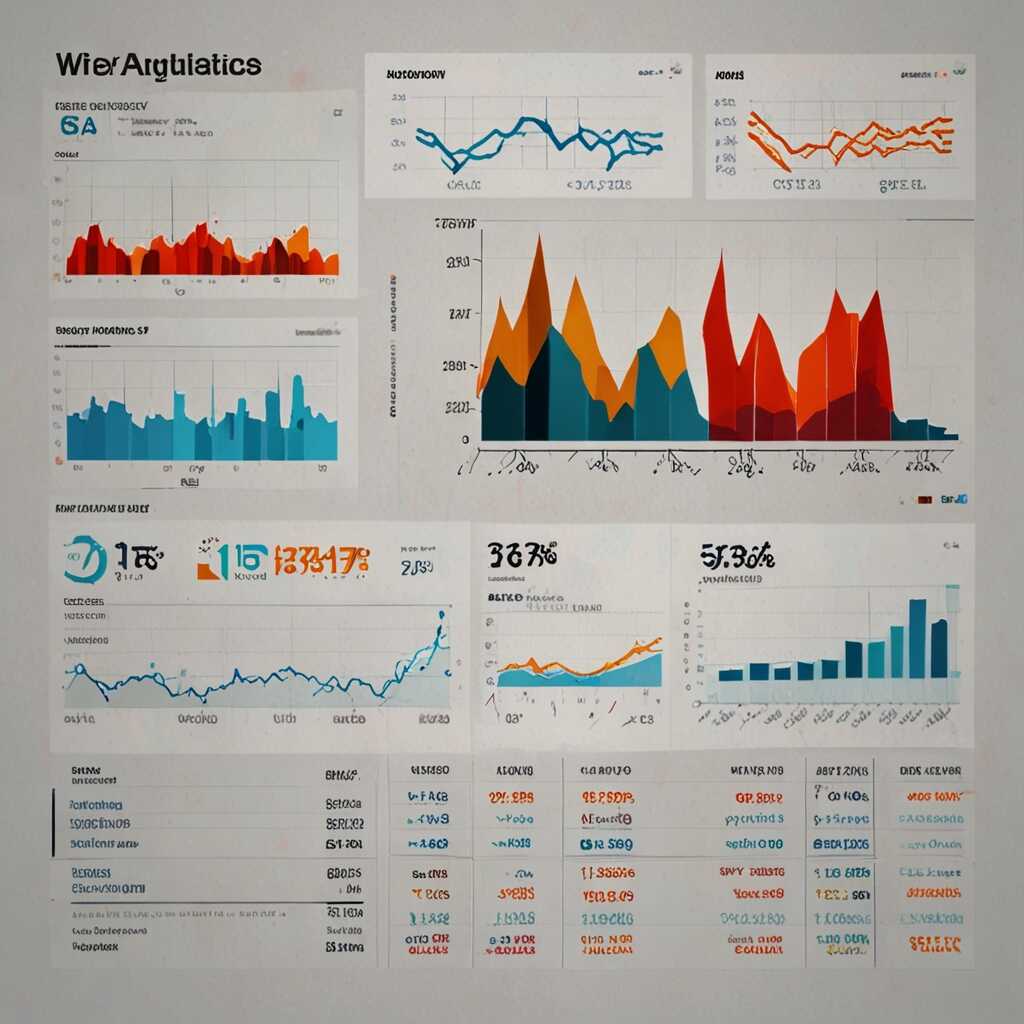Seasonal SEO strategies are essential for local business success, as they align your marketing efforts with customer behavior throughout the year. By understanding the seasonal patterns that affect consumer interest, local businesses can tailor their online presence to meet changing demands. At Metrics Rule, we believe that implementing effective seasonal SEO can enhance visibility and engagement, driving more traffic to your business during peak times. With our expertise in SEO and data analysis, we provide actionable insights that help businesses thrive in a competitive landscape.
Understanding the Year-Round Importance of Local SEO
Local SEO is essential for businesses because it enhances their visibility and attracts customers throughout the year. Continuous optimization ensures that businesses remain relevant in search results, especially during peak seasons. Various seasonal events, such as holidays or local festivals, can greatly impact local SEO performance. By maintaining an active online presence, businesses can effectively respond to changing customer behaviors and capitalize on seasonal trends. Engaging in regular SEO activities, ideally spending several hours a week, can help local businesses stay competitive and increase their chance of attracting new customers consistently.
Key Seasonal Events Impacting Local SEO
Understanding how key seasonal events influence customer engagement is crucial for local businesses. Events like Christmas, Thanksgiving, and summer holidays represent prime opportunities to improve visibility through targeted local SEO strategies. For instance, creating content that resonates with these seasonal themes can drive traffic and enhance customer connection. Local businesses should perform keyword research to identify relevant terms and incorporate them into their websites and marketing efforts. This approach not only boosts rankings but also fosters customer loyalty. By leveraging seasonal SEO tips, businesses can ensure they capture attention during these critical periods, ultimately leading to improved sales and brand recognition.
The Role of Seasons in Shaping Consumer Buying Patterns
Seasonal changes significantly impact consumer buying behaviors, particularly in local markets. For instance, during winter holidays, shoppers tend to spend more on gifts, decorations, and seasonal products. Understanding these patterns enables local businesses to adjust their marketing strategies effectively. Research shows that industries such as retail, food, and tourism experience substantial sales fluctuations throughout the year. Local businesses can benefit from analyzing seasonal consumer behavior to optimize inventory, tailor promotions, and enhance customer engagement. This ensures better alignment with what customers want in each season. Annual sales data suggests that local businesses can make upwards of 30% of their total sales during peak seasons, highlighting the need for proactive seasonal strategies.
Key Strategies for Adapting to Seasonal Sales Trends
To adapt effectively to seasonal sales trends, local businesses should implement a variety of targeted marketing tactics. For example, running seasonal promotions can enhance visibility and drive traffic to their store or website. A solid understanding of sales fluctuations by season helps businesses allocate resources more efficiently. Using SEO strategies to create seasonal content can capture search engine traffic related to seasonal keywords, improving online visibility. Leveraging platforms such as social media for seasonal advertising offers the chance to connect with customers directly. Furthermore, analyzing customer data helps businesses refine their approach each year, enhancing overall performance and ensuring a reliable return on investment.

Effective Techniques for Discovering Seasonal Keywords
Researching seasonal keywords is essential for enhancing your local business’s SEO strategy. Use tools like Google Trends to identify popular search terms that fluctuate with the seasons. This tool helps you track search volume over time, providing insights into when specific keywords peak. Another useful method is analyzing previous years’ performance by reviewing analytics data. You should also explore long-tail keywords relevant to your local offerings. Aiming for around 10 to 20 seasonal keywords can help ensure you attract targeted traffic throughout the year.
Using Google Trends for Local SEO Success
Utilizing Google Trends effectively provides detailed insights into seasonal search patterns that can enhance your local SEO. Local business owners should regularly monitor trends to find keywords that align with seasonal promotions. Set up alerts for relevant keywords, allowing you to react quickly to rising search interest. This approach helps you adapt your content and marketing strategies, ensuring they meet user expectations during peak search times. By integrating seasonal keywords identified through Google Trends, you can significantly improve your visibility on search engines like Google and Bing.
Key Statistics on Seasonal Search Trends
- Increased local search volume peaks during holiday seasons, with a 50% average rise.
- About 80% of seasonal shoppers start their research one month before the event.
- Local SEO efforts can enhance visibility by up to 80% during peak seasons.
- Approximately 40% of consumers rely on online reviews during their shopping process.
- Businesses that optimize content seasonally can see a 35% boost in engagement.
- Mobile searches for seasonal products rise by 60% during festive times.
- Over 70% of consumers prefer businesses that display holiday promotions online.

How to Craft Content for Seasonal Marketing Campaigns
To create compelling content for seasonal marketing campaigns, local businesses should focus on three effective content types. First, blog posts that offer seasonal tips or showcase local events greatly enhance customer engagement. Second, visually appealing social media graphics related to seasonal promotions encourage shares and interactions, building an online community. Third, email newsletters can provide targeted promotions and special offers to a loyal customer base, reminding them about seasonal needs. Incorporating customer feedback is essential; utilizing reviews and testimonials helps to ensure authenticity and reliability in your seasonal content. Additionally, research indicates that around 60% of consumers are influenced by seasonal promotions when deciding what to purchase. This data emphasizes the importance of designing effective content around seasonal themes to enhance sales and customer interactions.
Utilizing Local Events for Seasonal Content Creation
Incorporating local events into your seasonal content strategy can significantly improve customer engagement. For example, create a schedule of upcoming festivals, market days, and community gatherings. Develop blog posts or social media campaigns that tie your offerings to these events, ensuring your messaging resonates with local interests. You might include tips on how to celebrate an event or share special promotions designed for attendees. Such content can enhance your visibility in local searches and capture the attention of potential customers actively seeking seasonal information. Aligning your content creation with local events provides excellent opportunities for outreach and positioning your business as an integral part of the community.

Strategies for Adapting Onpage SEO to Seasonal Changes
To effectively adapt your on-page SEO strategy for seasonal changes, start by updating your meta descriptions. Make them vibrant and relevant to the current season, ensuring they include seasonal keywords. For instance, if your business is in e-commerce, focus on seasonal promotions, such as “Summer Sale” or “Holiday Discounts.” Key elements to modify include title tags, alt tags for images, and header tags. Research seasonal trends to identify which keywords can enhance your visibility, and consider integrating at least 10 to 15 seasonal keywords throughout the year. This strategy helps optimize your content and provides your audience with timely and relevant information.
Techniques for Effective Seasonal Keyword Research
Effective seasonal keyword research involves various techniques to ensure your content resonates with your audience. Start by using tools like Google Trends and keyword planners to identify popular seasonal searches. Focus on keywords related to local events, festivities, or seasonal products that align with your business. Analyzing your competitors’ seasonal content can also provide valuable insights into effective keyword usage. Furthermore, consider utilizing AI-driven tools to automate keyword suggestions based on seasonal relevance. By ensuring your keywords are relevant and timely, you enhance your chances of capturing local search traffic during peak seasons.
Advantages of Tailoring Search Strategies for Seasons
- Boosting seasonal sales can lead to a significant revenue increase for local businesses.
- Engaging with customers around holidays and events fosters loyalty and repeat business.
- Creating timely content helps in attracting seasonal keyword traffic efficiently.
- Utilizing promotions during special events increases overall brand visibility.
- Your brand can stand out in local listings by updating seasonal offerings.
- Seasonal SEO strategies can improve website traffic and lower bounce rates.
- Connecting with community events enhances brand reputation and customer trust.

The Importance of Tracking Seasonal SEO Performance Metrics
Monitoring seasonal SEO performance metrics is essential for optimizing your strategies. Key performance metrics include organic traffic, conversion rates, and keyword rankings. Tracking these allows local businesses like those in Vancouver to refine their seasonal SEO strategies based on real data. You can enhance your reliability and performance by identifying which keywords and trends drive traffic and conversions during different seasons. Such insights help businesses understand consumer behavior, enabling them to adapt their strategies effectively and achieve better results.
Understanding Seasonal Trends in Performance Metrics
Analyzing seasonal trends in performance metrics helps local businesses gauge the effectiveness of their SEO efforts. By utilizing tools like Google Analytics, you can track how various local industries experience shifts in consumer search patterns. For example, e-commerce sites may see spikes during holidays, while restaurants may peak during summer. This specific analysis helps in understanding seasonal trends, allowing businesses to improve their keyword strategies and promotional efforts. Consistent review of these metrics equips entrepreneurs with essential insights to stay ahead in the competitive local market.
Leveraging Local Events in Your SEO Strategy
Incorporating local events into your SEO strategy can greatly enhance your business’s visibility and community connection. Firstly, local events often attract significant public interest, providing a golden opportunity for local businesses. By creating engaging content around these events, you can include relevant keywords that potential customers are searching for. Also, promoting events through your website and social media channels can help improve your search rankings on Google. It’s essential to create a content calendar that aligns with local happenings to ensure you are always relevant. Local content marketing can maximize your reach and create a dependable customer base.
Types of Local Events to Feature in Your SEO Content
When considering which local events to highlight, focus on those that align with your business goals and attract your target audience. Examples include seasonal festivals, holiday parades, community fairs, and trade shows relevant to your industry. Featuring these events in blog posts, social media updates, and email newsletters can enhance engagement and drive traffic to your website. Including SEO tactics in your event-focused campaigns, such as keyword-rich descriptions and local backlinks, will significantly improve your site’s search performance. Emphasizing community involvement through these events builds trust and reliability, essential for long-term customer relationships.
Companies and Their Approaches in Seasonal Marketing
- Company A is known for holiday promotions but often lacks consistent messaging throughout the year.
- Company B excels in local search optimization but sometimes misses seasonal content updates.
- Company C effectively uses social media for seasonal campaigns, enhancing customer engagement.
- Demographic X prefers hand-crafted seasonal items, ideal for local artisans looking to grow.
- Demographic Y seeks unique experiences, which local businesses can capitalize on during holidays.
- Demographic Z enjoys local events, increasing foot traffic during seasonal festivities.
- Using community insights helps businesses tailor their seasonal strategies effectively.
Strategies for Sustaining SEO Efforts Post-Seasonal Peaks
Maintaining SEO efforts after seasonal peaks is vital for local businesses. This ensures ongoing engagement and visibility, preventing declines in search rankings and traffic. To adapt, businesses should focus on effective content updates that resonate with their audience year-round. Regularly reviewing customer behavior analysis helps identify trends and interests that remain relevant, enabling businesses to adjust their SEO strategies. For example, businesses can implement a blog that continues to address the needs of their audience, enhancing local business visibility through ongoing keyword optimization. Additionally, diversifying keyword strategies with seasonal SEO strategies can bolster traffic even in off-peak times.
Adapting Content for Year-Round Engagement
Adapting content for year-round engagement involves regularly updating your website and blog to align with changing customer behaviors. For local businesses, this means utilizing effective content updates that resonate with your audience beyond peak seasons. Focus on creating blog posts and articles that address seasonal customer needs, trends, and insights. By analyzing past data, businesses can identify which seasonal keywords had the best results and adapt these for ongoing relevance. This strategy ensures local business visibility remains consistent while enhancing the overall reliability of SEO efforts. Implementing seasonal SEO strategies throughout the year can ultimately boost engagement, ensuring your local business stays relevant in the digital market.
